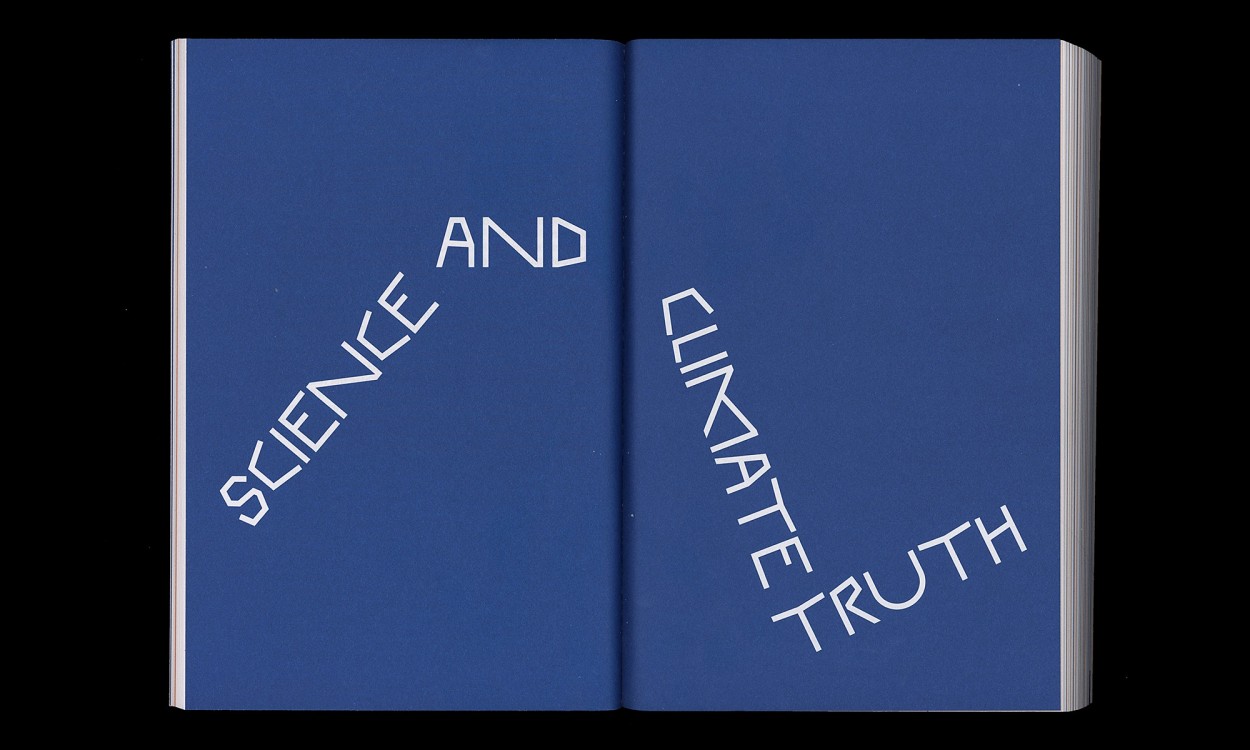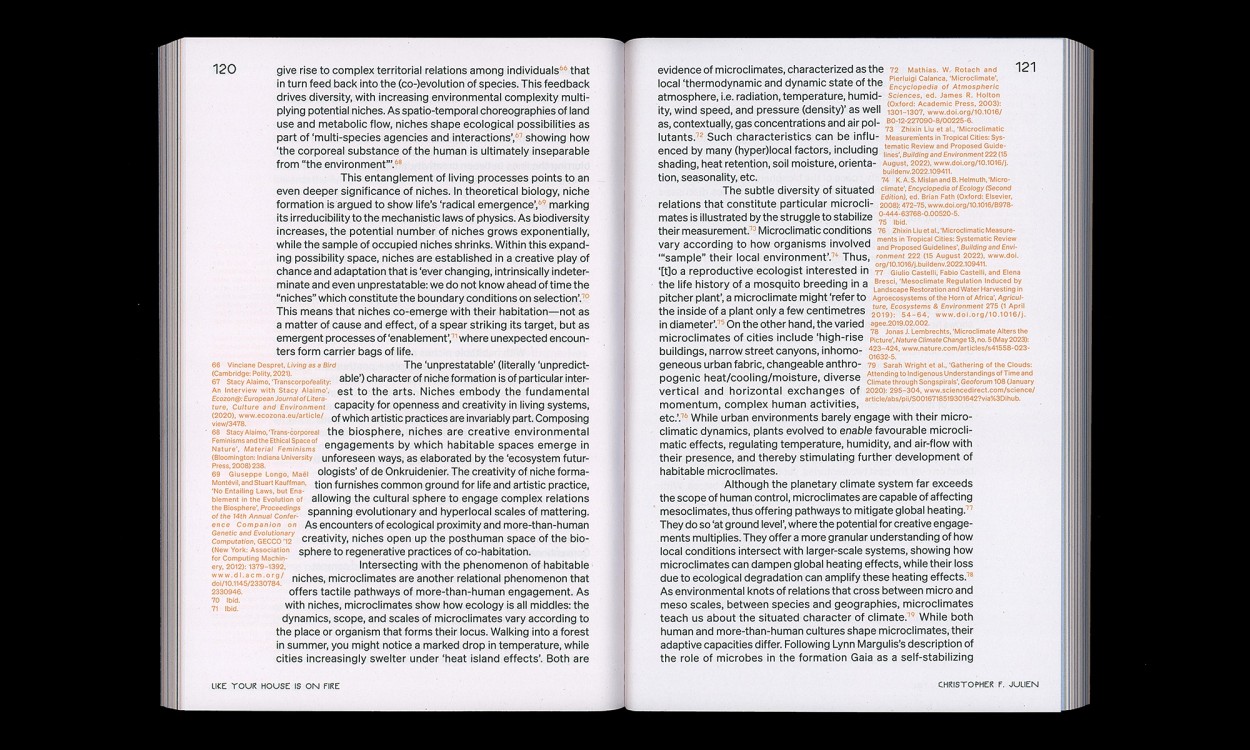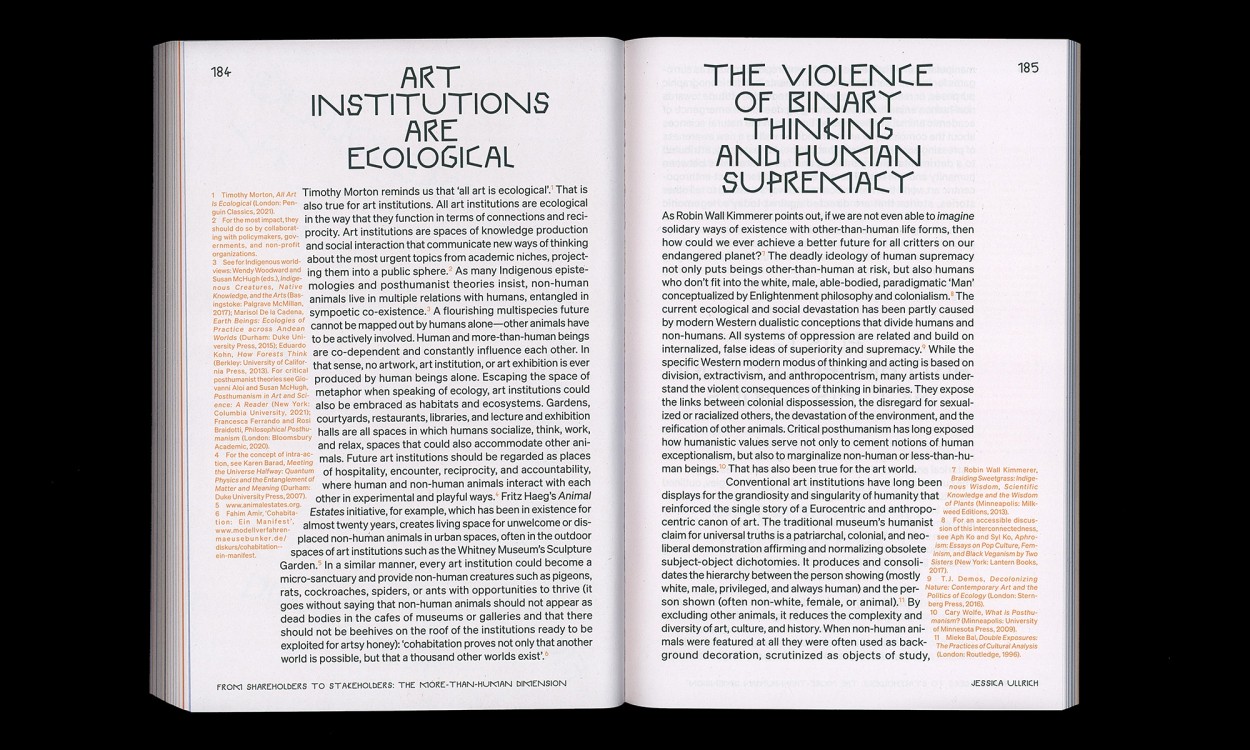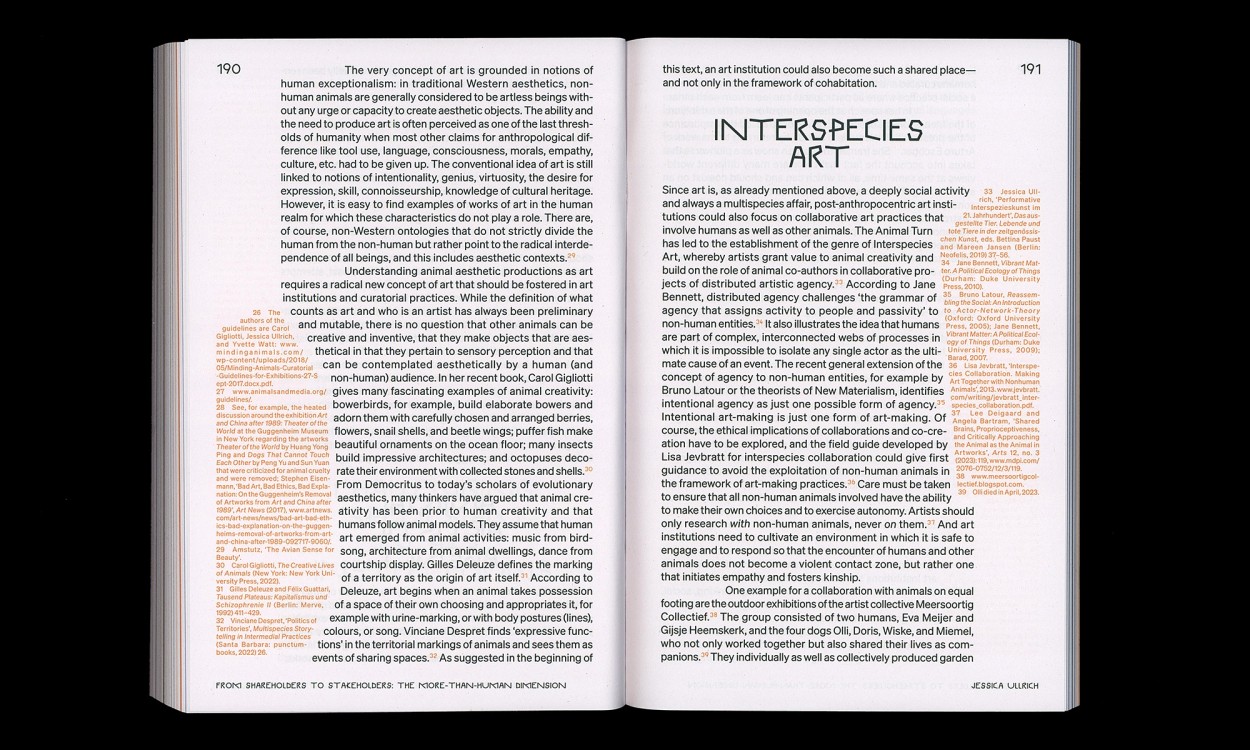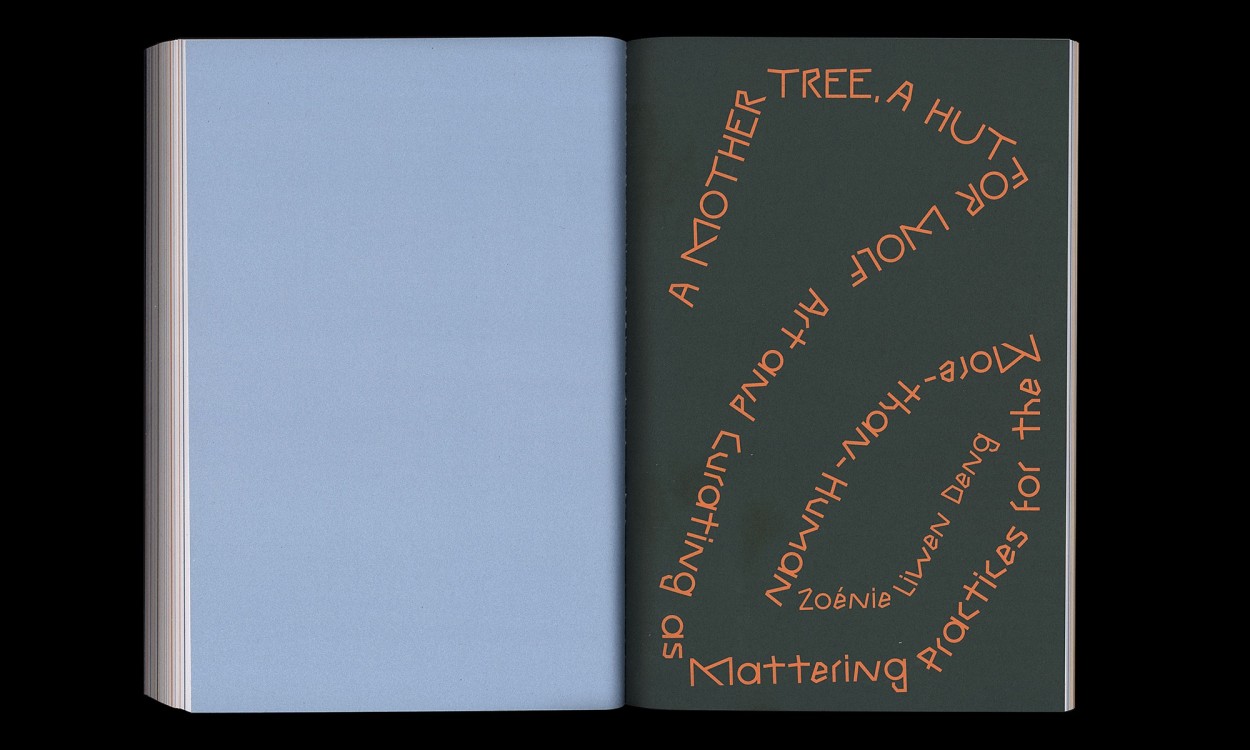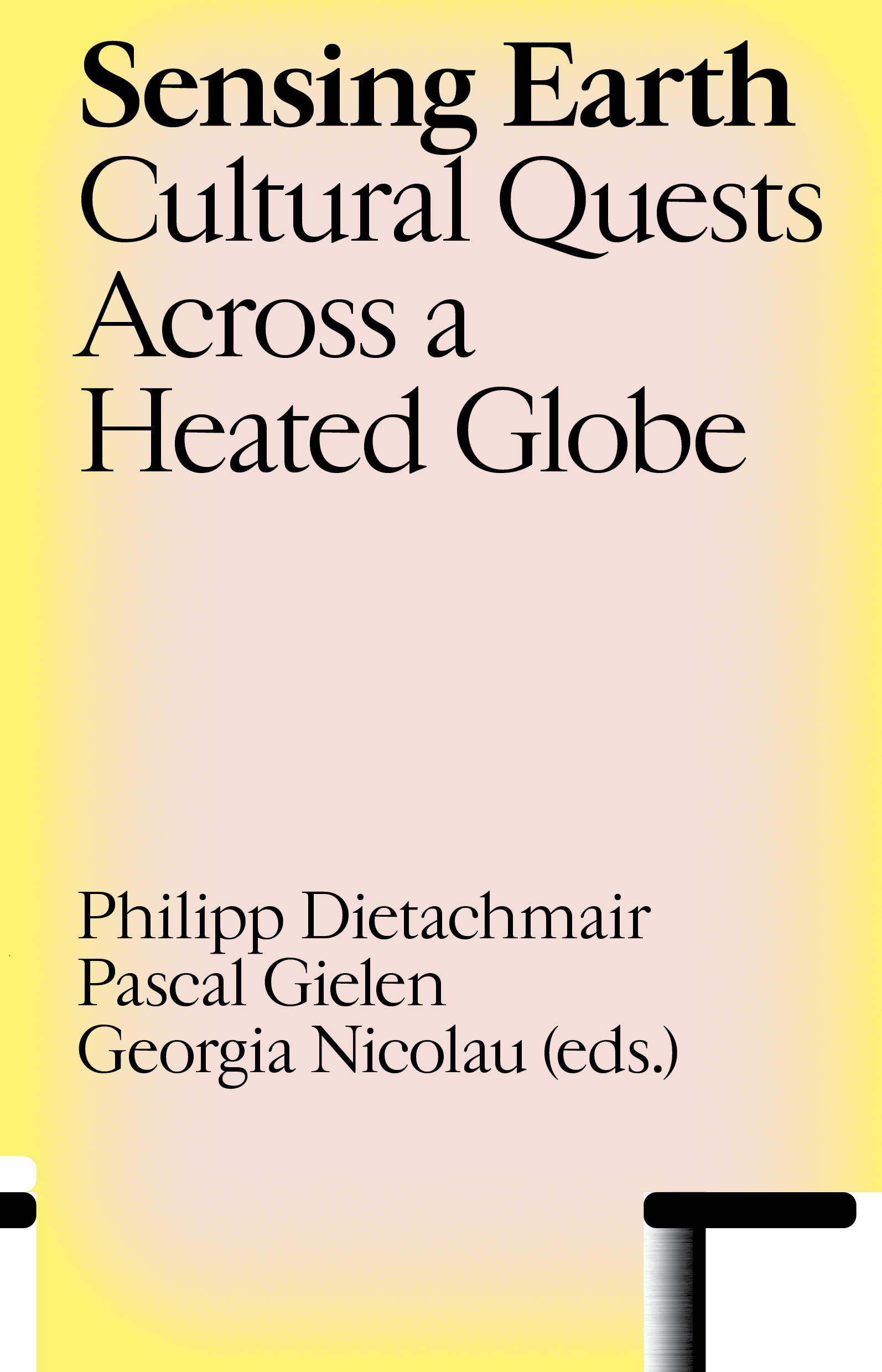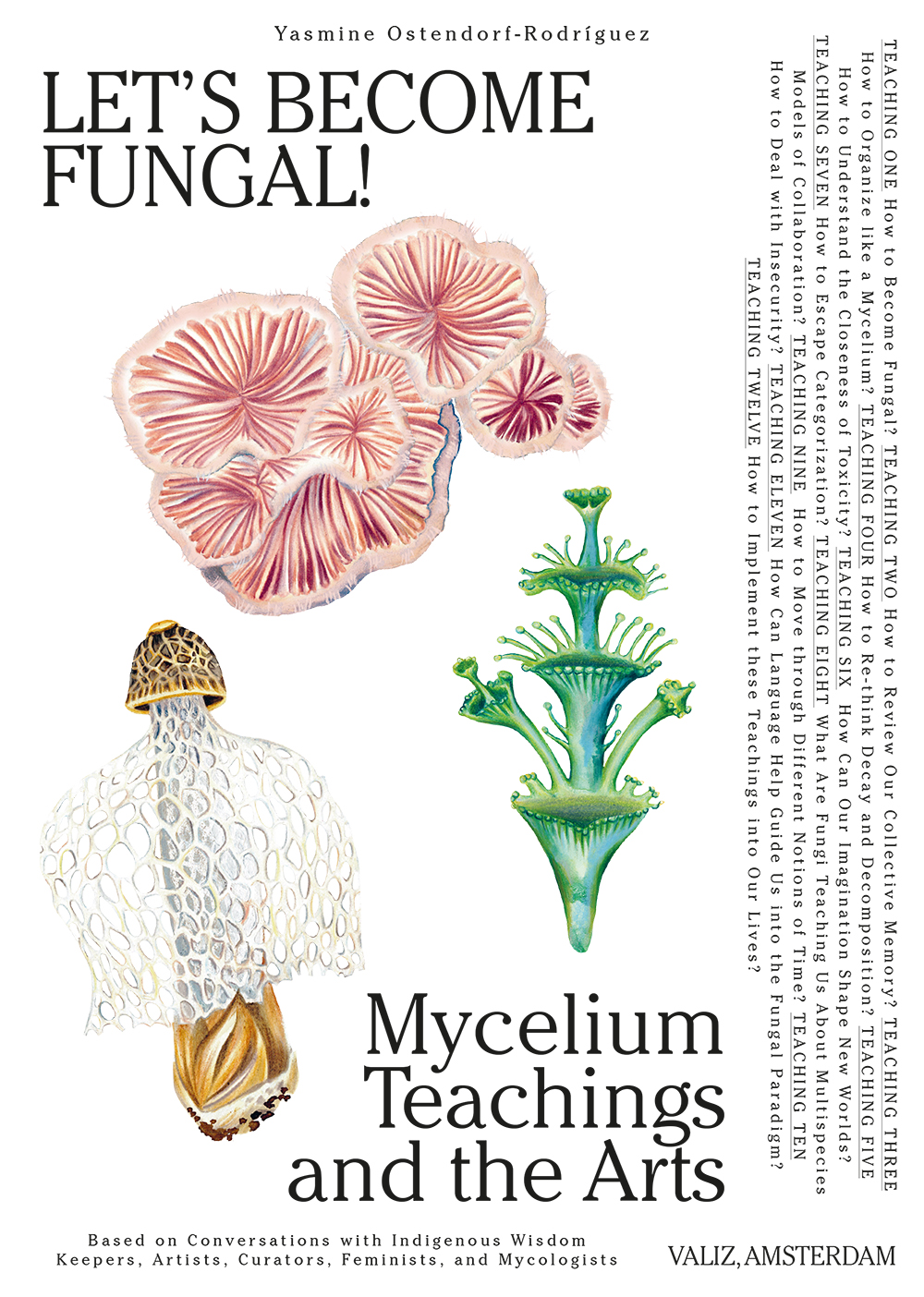Worlding Ecologies
Art, Science and Activism Towards Climate Justice
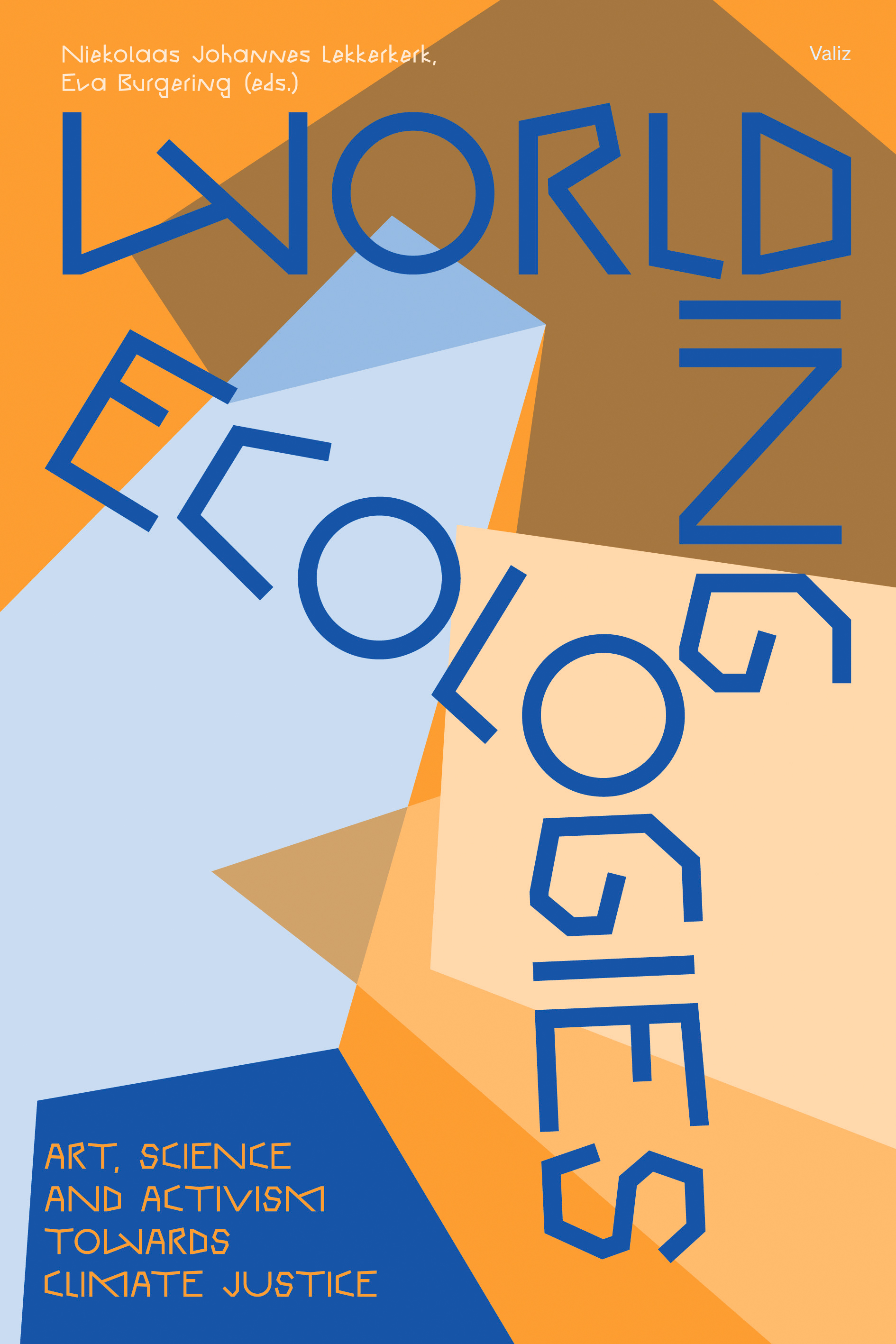
- climate justice for all!
- addresses urgent topics in our common challenge to save our living environment
- with many different views on how art, science and activism can interact in finding new perspectives
Auteur: Ursula Biemann, Federica Bueti, Eva Burgering, TJ Demos, Zoénie Liwen Deng, Jeff Diamanti, Lisa Doeland, Taru Elfving, Sami Hammana, Christopher F. Julien, Niekolaas Johannes Lekkerkerk, Michael Marder, Chus Martinéz, Victoria McKenzie, Margarida Mendes, Vincent Normand, Filipa Ramos, Jessica Ullrich
Redactie: Niekolaas Johannes Lekkerkerk, Eva Burgering
Partner: RADIUS, center for contemporary art and ecology
Ontwerp: Wibke Bramesfeld
Juli 2024, Valiz in samenwerking met RADIUS, center for contemporary art and ecology | ondersteund door Mondriaan Fund, het Cultuurfonds en M.A.O.C. Gravin van Bylandt Stichting | pb | 256 blz. | 24 x 16 cm (h x b) | Engels | ISBN 978-94-93246-34-8 | € 27,50
Niekolaas Johannes Lekkerkerk (1988, NL) works as director and curator at RADIUS, center for art and ecology located in Delft, which he founded in 2021. Lekkerkerk published The Standard Book of Noun-Verb Exhibition Grammar (Onomatopee, 2018) and Bestiary of Corona Animals (Onomatopee, 2020).
Eva Burgering is a curator, exhibition maker, and writer. She works for various art institutions and museums, such as Nest in The Hague and the Centraal Museum in Utrecht, and was head of production and publications at RADIUS.
RADIUS is a center for contemporary art and ecology in Delft (NL). RADIUS works collaboratively with artists and other stakeholders to tell the urgent and necessary story of climate and systems change by means of art. RADIUS does so through a continuous program, consisting of exhibitions, public and educational programs.
How can art, science and institutional practices counteract the negative consequences of climate and ecological breakdown? How can these practices and ideas advance systemic change? Worlding Ecologies serves as an anthology of examples and wayward navigational tool, assembling eighteen authors exploring this question from their diverse backgrounds––as scientists, artists, philosophers, activists, theorists and curators––to rigorously approach urgent ecological challenges, including climate breakdown, pollution, biodiversity loss, environmental and social justice.
This book emphasizes the fundamental role of art as a vehicle and support structure for intersectional ecological thought. Whilst navigating imagination, worlding-possibility, science fact, social justice and climate action, the book prompts a fundamental role for art to create the blueprints for regenerative and sustainable more-than-human worlds. Structured alongside three sections––Science and Climate Truth; Activism and Climate Justice and Social Justice in Institutional Ecosystems––Worlding Ecologies moves from fieldwork-taking to patchwork-making, unifying the arts with science, politics and ecology into a field of synthetic thought and commitment.

